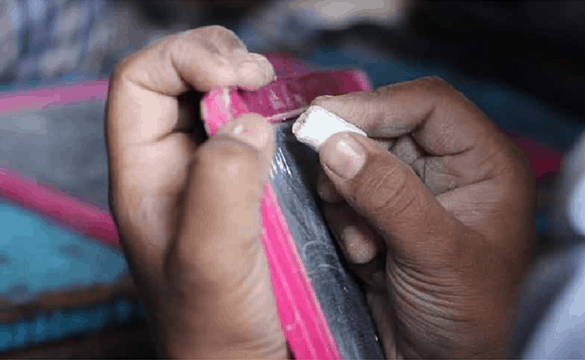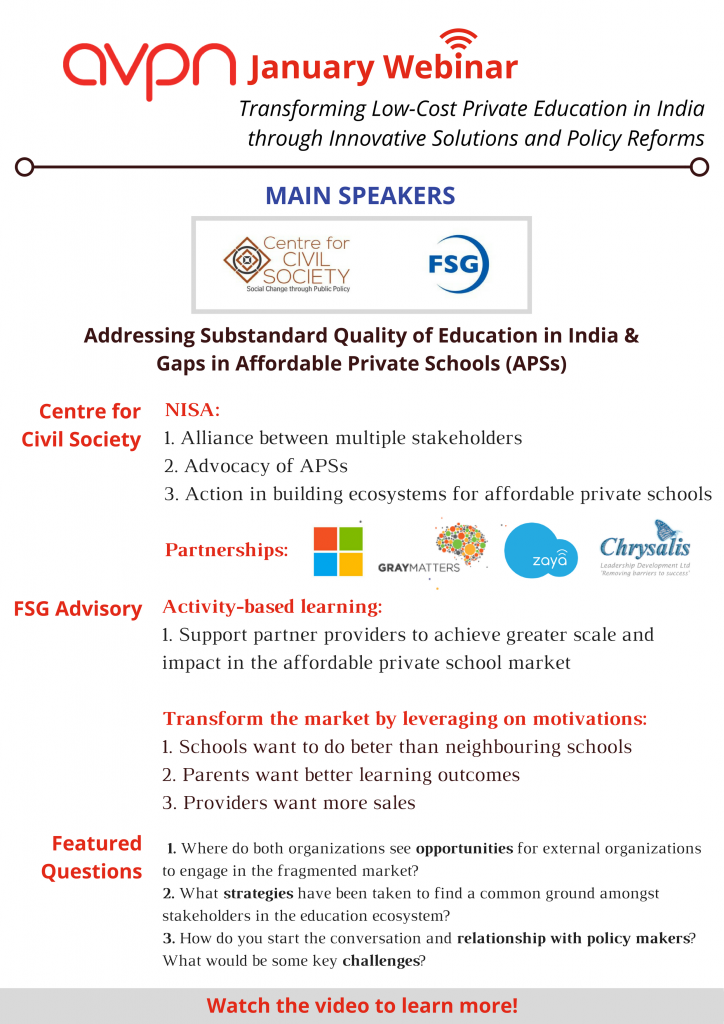Affordable Private Schools (APS) have emerged as a vital response to the rising demand among the country’s poorest for an education of their choosing. The proliferation of these low-fee schools has indicated a marked disillusionment amongst parents with public delivery, an increasingly aspirational lower and middle income class, and a sustained perception of private schools as sites of better quality education. However, despite the demonstrated scale of the private sector with an enrollment of nearly 92 million students, private schools continue to face challenges due to complex and hostile regulatory frameworks.
In this webinar, two AVPN member organisations – Centre for Civil Society and FSG Advisory shared their work around the opportunity to transform the APS market through broader child development and discuss challenges of delivering quality education at low costs. They presented insights from the National Independent Schools Alliance (NISA), a multi-stakeholder alliance that brings together schools, service providers, investors, education experts and leaders, to amplify the voice of APS in the country. The webinar also presented insights from ‘The Preschool Promise’, a whitepaper that provides insights on how high-quality practices can be spread in the APS market.
The webinar focused on the following topics:
- Highlighted the scope of NISA as a resource for both practitioners and service provides to conceptualise, pilot and implement cost-effective learning solutions.
- Built a dialogue on furthering the scope for integrating effective advocacy with innovations and interventions for improving learning outcomes
- Shared perspectives on the the Program to Improve Private Early Education


















